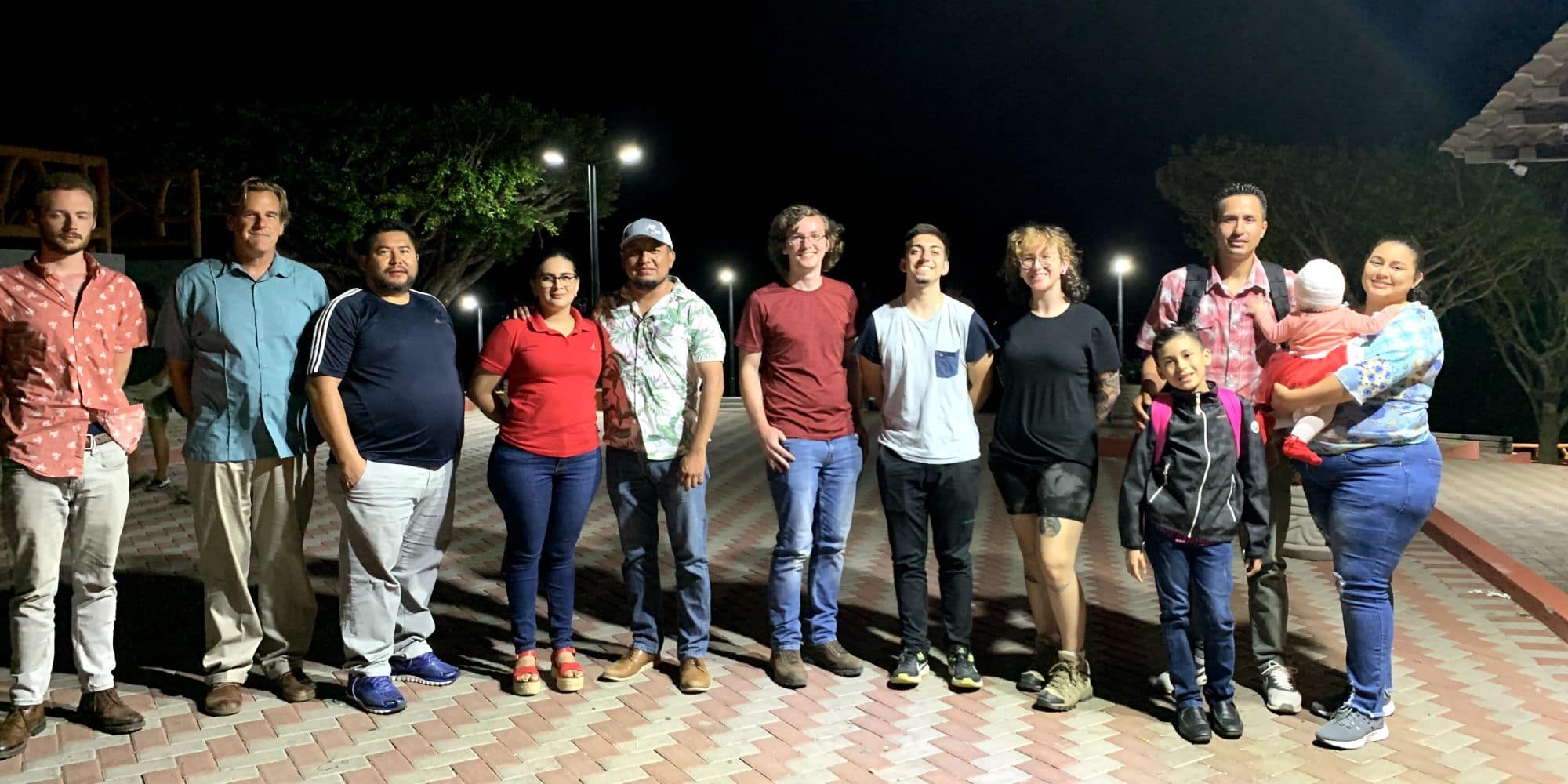

Engineers Without Borders
Embry‑Riddle Students in El Túnel, Nicaragua

For Aerospace Engineering major Izel Tuncer (’25), joining Engineers Without Borders (EWB) at Embry‑Riddle was an obvious choice. The organization not only offers aid to communities in need but also gives members an opportunity to practice their engineering skills and gain valuable knowledge in a real-world setting.
"Engineers Without Borders is here to help build a better world. This is the heart of engineering; using our skills to help those who need it most,” Tuncer said, thinking of the organization’s purpose. “We’re able to build connections and find solutions for communities.”
Clean Water Accessibility
Globally, EWB has a track record of facilitating lasting change. Among all EWB projects worldwide, 91% showed the capacity to be sustained by the local community beyond assistance from the organization.
To receive assistance from Engineers Without Borders, communities in need must reach out and request it. El Túnel reached out to EWB about five years ago, was approved for assistance and assigned to work with the Embry‑Riddle chapter. The problem in El Túnel: lack of accessibility to clean water.
Since then, EWB and El Túnel have been working together to build a relationship, completing paperwork, working through language barriers, fundraising and waiting out a global pandemic.
Traveling to El Túnel
On March 11, the EWB Embry‑Riddle chapter finally traveled to Nicaragua to begin surveying the land and testing the soil and water, led by Dr. Jeff Brown, professor of Civil Engineering.
To prepare, the group has not only been fine-tuning their surveying and engineering skills but also completing crucial health, safety, CPR and first-aid training. The end goal is to provide the El Túnel community with wells to provide a steady supply of clean water.
“My favorite part was... when we talked with the community about what we had done and what our plan is. We were able to hear feedback from the people that have been impacted by not having enough water,” Tuncer shared, continuing, “Everyone was so grateful that we came out of our comfort zone to help them. It was just so nice to hear... that we can really make a difference in these people's lives.”
The Embry‑Riddle group returned from the trip on March 18 after days of surveying land, visiting neighboring areas with successful well systems, making plans and communicating with the community (with the help of Eduardo, their translator).
Next steps for the project include finalizing design plans and hiring a remote team to complete the well digging and implementation process before deciding if they’ll need to add another. At the end of 2023, they plan to take a larger team back to El Túnel.
Champions of Inclusivity
EWB’s efforts are not going unnoticed in the Embry‑Riddle community. During Engineering Week in February, the College of Engineering awarded EWB with one of their Inclusivity, Diversity, Equity and Advocacy (IDEI) awards, which gives recognition to organizations who are leaders in those areas.
“Although our chapter is small, we are a very diverse group of engineers that work hard to help these communities,” Tuncer said. “Without groups like EWB, many communities would not get the help they need. Just in the EWB USA organizations, 506 projects were underway in 2021."
EWB is making impressive strides not only.in developing relationships between communities who need assistance and those who can assist them but also in inclusion among members of their own organization. According to the impact page on EWB’s website, “More than 40% of EWB-USA's student member engineers are female, which is more than double the 14% industry average.”
Join the Cause
To donate to assist the Engineers Without Borders chapter at Embry‑Riddle in their mission to give clean water access to the people of El Túnel, type “Engineers Without Borders” in the designation portion on the Giving to Embry‑Riddle page!
"I’m continually inspired and motivated by the thought that I can make a difference, no matter how small I am in the grand scheme of things."


